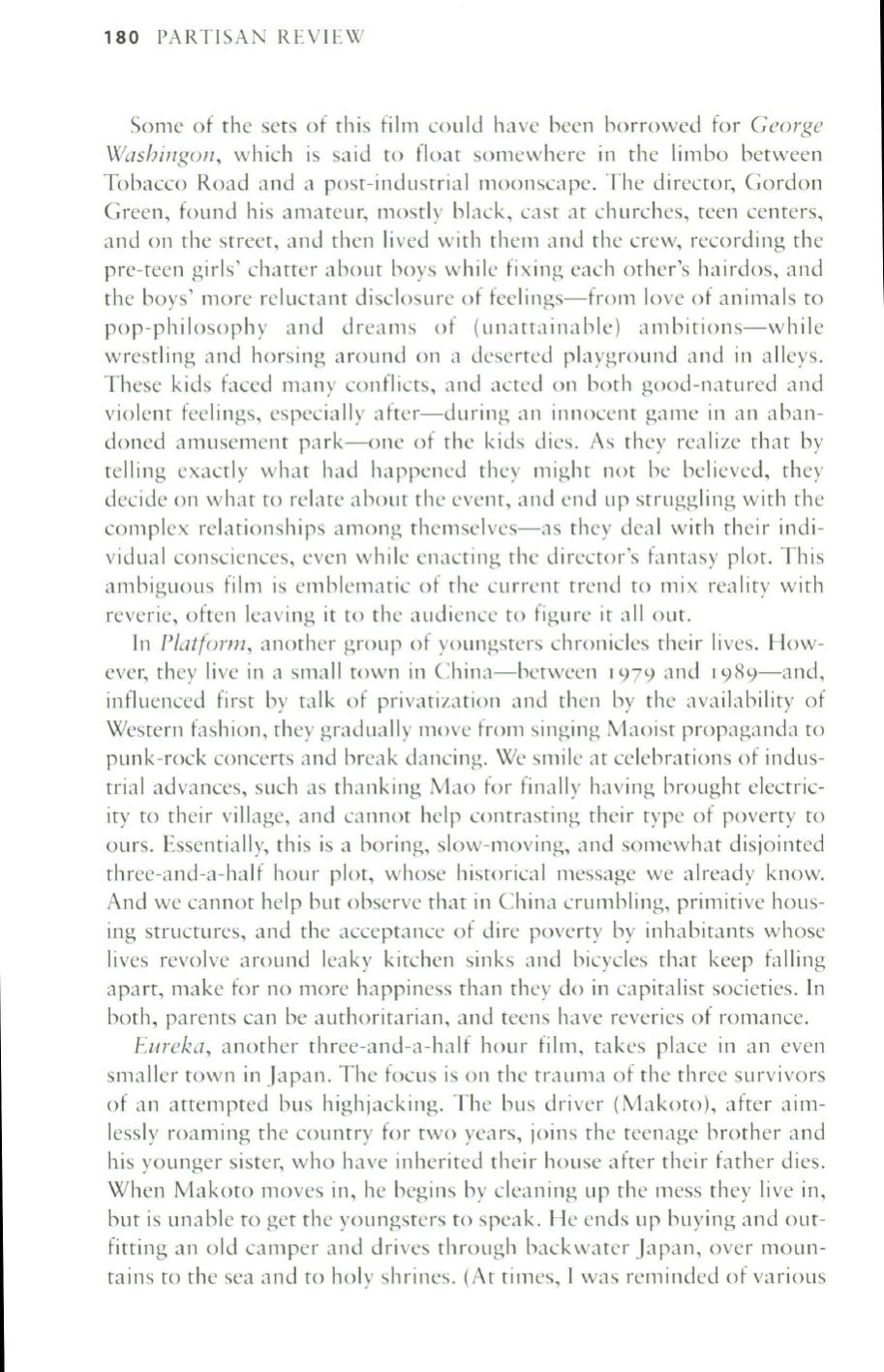
180
PARTISAN REVIEW
Some of the sets of th is film could ha ve been borrowed for
George
Washillgoll,
which is said to float somcwhere in the limbo between
Tobacco Road and a post-industrial moonscape. The director, Gordon
Green, found his amateur, mostly black, cast at churches, teen centers,
and on the street, and then lived with them and the crew, recording the
pre-teen girls' chatter about boys while fixing each other's hairdos, and
the boys' more reluctant disclosure of feelings-from love of animals to
pop-philosophy and dreams of (unattainable) ambitions-while
wrestling and horsing around on a deserted playground and in alleys.
These kids faced many conflicts, and acted on both good-natured and
violent feelings, especially after-during an innocent game in an aban–
doned amusement park-one of the kids dies. As they realize that by
telling exactly what had happened they might not be believed, they
decide on what to relate about the event, and cnd up struggling with the
complex relationships among themselves-as they deal with their indi–
vid ua I consciences, even wh iIe enacting the director's fa ntasy plot. Th is
ambiguous film is emblematic of the current trend to mix reality with
reverie, often leaving it to the audience to figure it all out.
In
Platform,
another group of youngsters chronicles their lives. How–
evel~
they live in a small town in China-between 1979 and 1989-and,
influenced first by talk of privatization and then by the availability of
Western fashion, they gradually move from singing Maoist propaganda to
punk-rock concerts and break dancing. We smile at celebrations of indus–
trial advances, such as thanking Mao for finally having brought electric–
ity to their village, and cannot help contrasting their type of poverty to
ours. Essentially, this is a boring, slow-moving, and somewhat disjointed
three-and-a-half hour plot, whose historical message we already know.
And we cannot help but observe that in China crumbling, primitive hous–
ing structures, and the acceptance of dire poverty by inhabitants whose
lives revolve around leaky kitchen sinks and bicycles that keep falling
apart, make for no more happiness than they do in capitalist societies.
In
both, parents can be authoritarian, and teens have reveries of romance.
Eureka,
another three-and-a-half hour film, takes place in an even
smaller town in Japan. The focus is on the trauma of the three survivors
of an attempted bus highjacking. The bus driver (Makoto), after aim–
lessly roaming the country for two years, joins the teenage brother and
his younger sister, who have inherited their house after their father dies.
When Makoto moves in, he begins by cleaning up the mess they live in,
but is unable to get the youngsters
to
speak. He ends up buying and out–
fitting an old camper and drives through backwater Japan, over moun–
tains to the sea and
to
holy shrines. (At times, I was reminded of various


